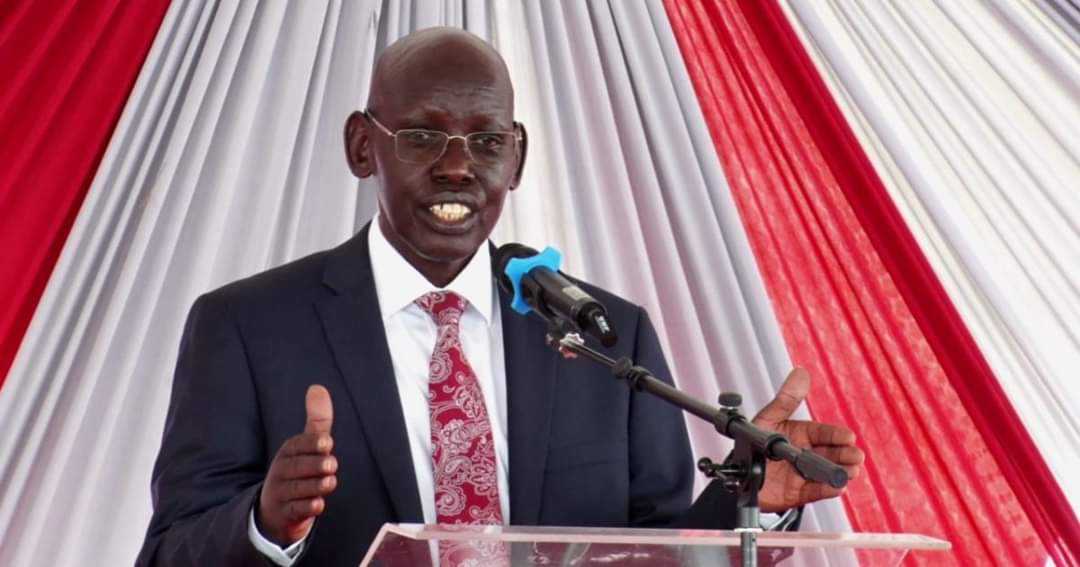
[wpedon id=”734″ align=”left”]Eight children died after a classroom collapsed at a private for-profit primary school in the Kenyan capital Nairobi in late September, 2019.
Precious Talent Top School, as the private primary establishment is called, collapsed minutes after the start of the school day on Monday 23 September, claiming the lives of 8 children and leaving 64 people injured.
The first floor of the building collapsed and trapped the children below, according to the BBC. Other news sources reported that the school was registered to admit only 340 students but the number had risen to more than 800.
In a first public appearance Education minister George Magoha apologised for what happened and promised action after investigations were completed. Later in the week, Moses Wainaina, the owner of the school, was arrested and the establishment was closed down by local law enforcement. Children have been moved to state-owned schools in the area.
The many threats of privatisation
The number of for-profit private schools in Kenya has been on the rise in the last years, from 7,742 in 2014 to 16,594 this year, according to official figures. Education International (EI) and its Kenyan affiliate the Kenyan National Union of Teachers (KNUT) are long-time critics of this expansion and have warned of the damaging effects privatisation can have. Privatisation is the greatest barrier to the achievement of SDG4 – free quality education for all, it weakens the social fibre of a society and does not mean better results for students. Evidence of this has been provided in numerous independent studies commissioned by EI as part of its Global Response campaign. Graver still, as the Precious Talent Top School collapse shows, the consequences of privatisation can be outright deadly, with young lives lost to greed and profiteering.
A circular sent by the Ministry of Education on the 26th of September announced that all non-registered schools were to be closed and students moved to public establishments. Wilson Sossion, General Secretary of KNUT, welcomed the Ministry’s initiative and affirmed KNUT’s commitment to the delivery of quality and equitable education: “We have asked the minister to proceed and shut down all unregistered schools including Bridge Academies. This is for the simple reason that unregistered schools give no guarantee to the safety of learners. KNUT fully rallies its members behind the circular to shut down all illegal schools within the Kenyan territory.”
Sponsored links:
- KNEC: How to download Contracted Professionals’ letters
- KNEC Contracted Professionals: How to check deployment station and other details
- KNEC: PTE, ECDE, SNE Latest registration instructions
- hKNEC Exam Administration: How to access, mark and print the Contracted Professionals’ attendance Register
- KNEC Exam results and Certificates: How to receive results and certificates from KNEC
- A link to all KNEC portals
- KNEC grading system for all subjects
- Identification, Nomination and selection of KNEC contracted Professionals
- Important information for teachers wishing to train as KNEC examiners
- KNEC: How to assign index numbers to KCPE, KCSE candidates
- tHow to download marking invitation letters for KNEC examiners
Also read;
Important Sponsored Links For You, Click below:
- Kisii University Courses, Requirements, Fees, Student Portals and how to apply
- Kenya Methodist University, kemu, Education and other Courses, Requirements, Fees, Student Portals and how to apply
- Kibabii University Courses, Requirements, Fees, Student Portals and how to apply
- Karatina University Courses, Requirements, Fees, Student Portals and how to apply
- Kabarak University Courses, Requirements, Fees, Student Portals and how to apply
- Education courses offered at Jaramogi Oginga Odinga, JOOUST, University:Requirements, Fees, Student Portals and how to apply
- Universities that offer education courses, teaching combinations, offered, requirements and how to apply for Chuka university courses
- KCA University Courses, Requirements, Fees, Student Portals and how to apply
- Kaimosi Friends University College Courses, Requirements, Fees, Student Portals and how to apply
- JKUAT Courses, Requirements, Fees, Student Portals and how to apply
- Garissa University Courses, Requirements, Fees, Student Portals and how to apply
- Egerton University Courses, Requirements, Fees, Student Portals and how to apply
- Dedan Kimathi University Courses, Requirements, Fees, Student Portals and how to apply
- Co-operative University Courses, Requirements, Fees, Student Portals and how to apply
- Chuka University Courses, Requirements, Fees, Student Portals and how to apply
- Maasai Mara University Courses, Admission, Requirements, Fees, Contacts, Student Portals Log in, Website and How to Apply
- Lukenya University Courses, Admission, Requirements, Fees, Contacts, Student Portals Log in, Website and How to Apply
- Laikipia University Courses, Admission, Requirements, Fees, Contacts, Student Portals Log in, Website and How to Apply
- Koitalel University Courses, Admissions, Requirements, Fees, Location, Contacts, Student Portals Log in, Website and How to Apply
- Kirinyaga University Courses, Admissions, Requirements, Fees, Location, Contacts, Student Portals Log in, Website and How to Apply
- Kibabii University Courses, Admissions, Requirements, Fees, Location, Contacts, Student Portals Log in, Website and How to Apply
- New list of all Kenyan university courses, requirements, fees, students, portals, website and how to apply
- Kenya Highlands University Courses, Admissions, Requirements, Fees, Location, Contacts, Student Portals Log in, Website and How to Apply
- New list of Top, Best Universities in Kenya
- Mount Kenya University, MKU; courses, admissions, requirements, student portal, website, Contacts, fees and applications


